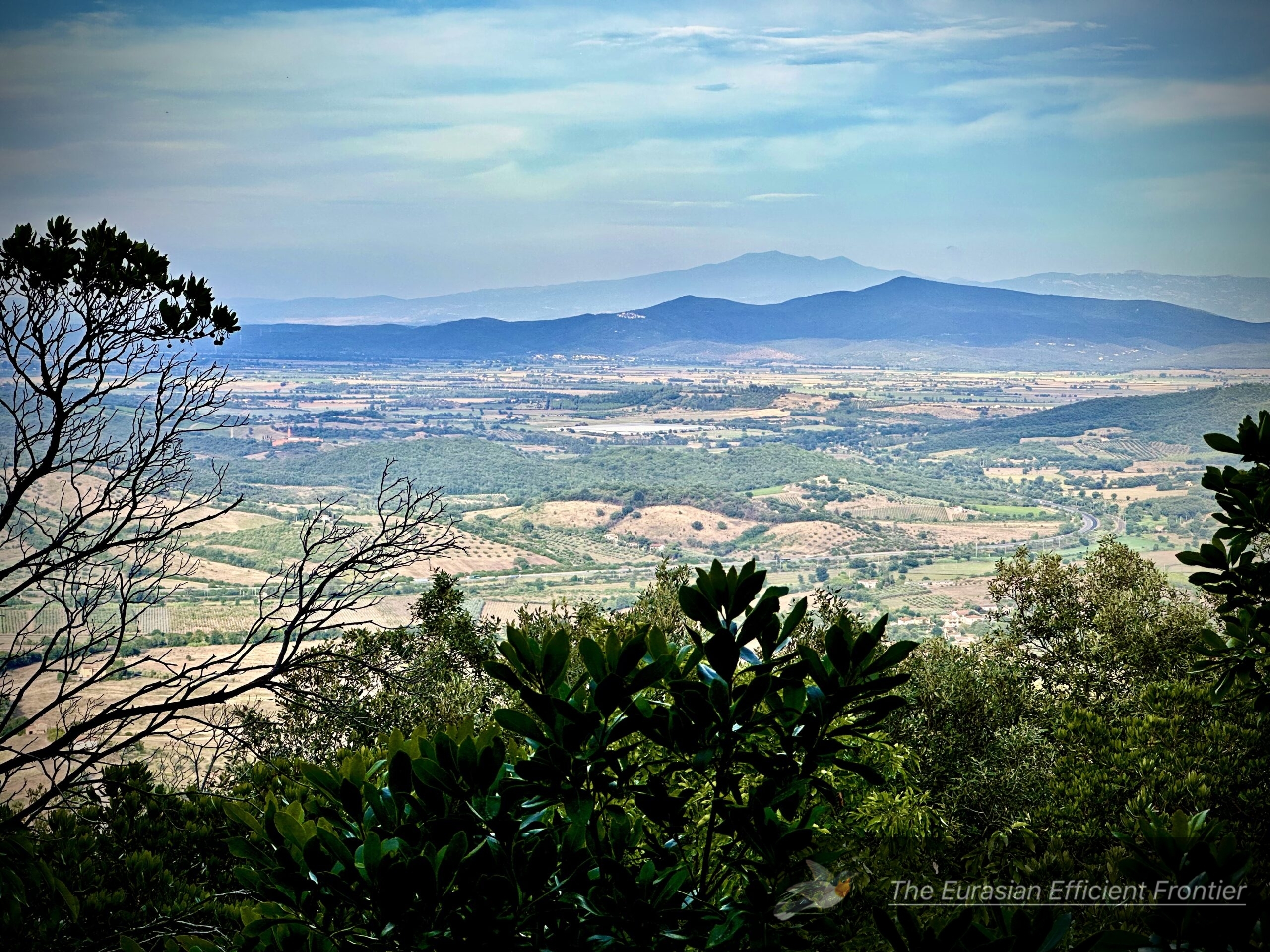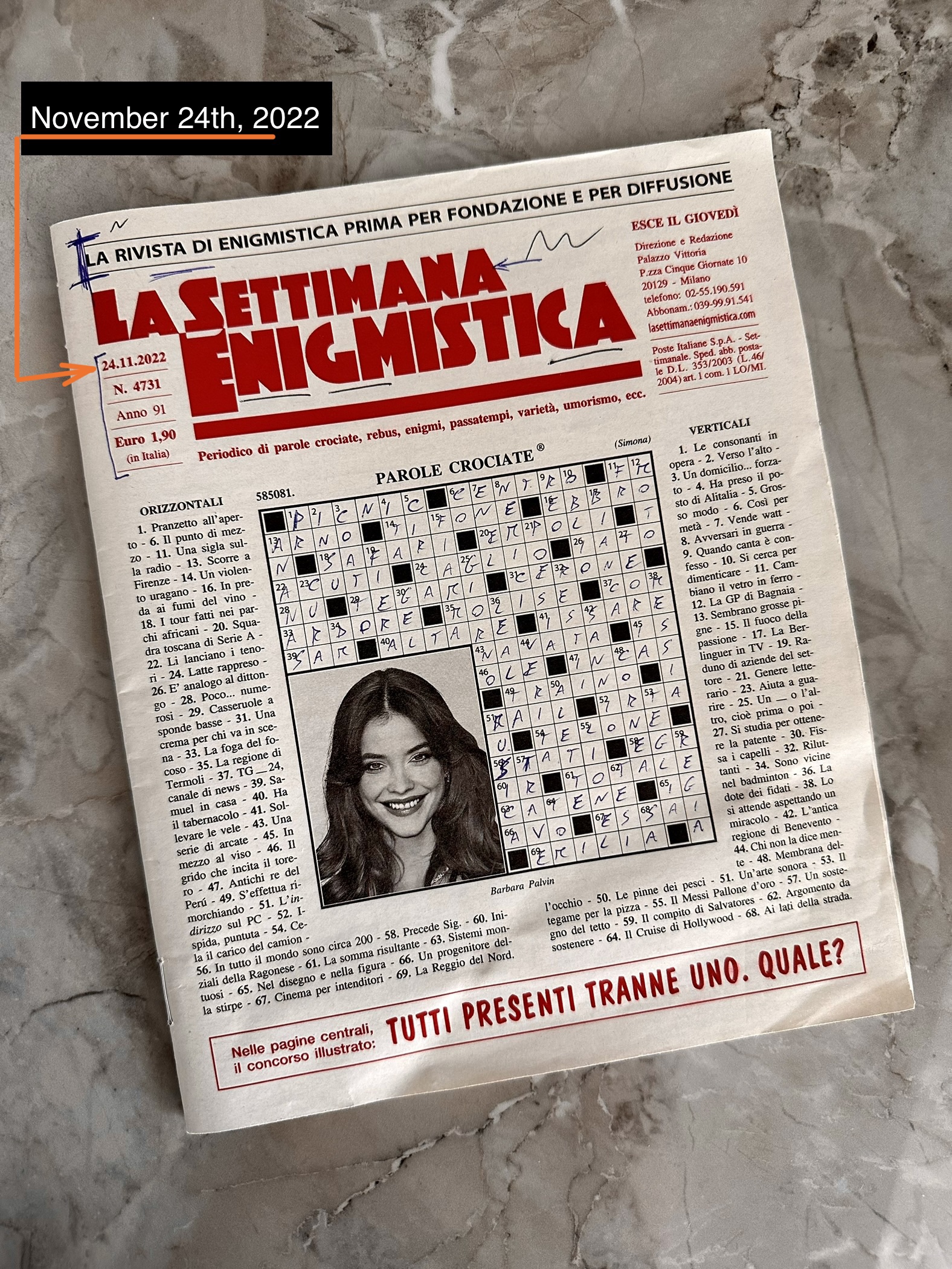Edit – June 12th, 2023: Check out the Video here!
Qingdao Team Building Trip, started while writing the last Post, has come to an end.
I am writing from the high-speed train bringing me back to Shanghai.
It has been a very nice trip, even though the program we followed was quite different from the scheduled one, also shown in the last Post.
This is quite normal here in China.
Everything is fast-paced (often extremely fast-paced), days are usually packed with activities and food (lots of food). Life in general is unpredictable and fluid. Everyday new situations, new people, new conditions. A continuous flow of change, involving all life aspects. Flexibility and Reactivity are key, here.

We saw it also with Covid in December 2022: from super strict “Zero Covid Policy” to “Everyone Free, No Control” within one night.
Of course, this also applies to leisure events like Team Building trips or, in general, organised trips. The schedule, often super detailed, in reality has to be intended like something flexible. I saw this several times already, over the years.
Places you really wanted and planned to visit are sometimes just ignored (maybe without explanations, or with very naïve ones), and new ones are unexpectedly introduced. This is not necessarily a cheat or a bad thing, as often these unexpected events turn out to be quite fun and interesting.
In this specific case, Laoshan Mountain hiking (1136 m above sea level) was suddenly deleted because… it was too hot. It was a pity because the view from there is spectacular (see the last photo from this Post to see it), but it is fine: we saw other interesting places.
I believe the right approach should be: “Just follow the flow, new nice surprises and places are always around the corner”.
Of course, don’t be too naïve and, when something looks unexpectedly strange, protect yourself and take care.
Qingdao Bay
Here a map showing Qingdao Bay.

Qingdao was Germany’s port in what was then called the “Jiazhou Bay Concession”. The Germans took the small town in 1897 under the pretext that two missionaries were killed by a mob of Chinese peasants, and the Qing Emperor “agreed” to a 99 year lease. The old town still shows German-style architecture.
Tsingtao Beer Company was founded in 1903 by Germans and British joint ventures. Germans, in order to drink fresh beer, brought high-quality yeasts from Germany to Qingdao Kaijian German Beer Company. This beer is now famous all over the world. We also visited the factory during this trip!

The bay is crossed by Qingdao Bay Bridge, the longest Sea Bridge in the world.
The T-shaped Jiaozhou Bay Bridge is a 31.7 km long roadway bridge in eastern China’s Shandong province, built in 2011. It is also called Qingdao Haiwan Bridge. The Qingdao Bay Bridge was built as part of the strategy to provide better connectivity between the two fast growing industrial regions on either side of the Bay.

It is part of the 41.58 km Jiaozhou Bay Connection Project, which includes also Qingdao Metro Line 1 sea-crossing tunnel (see map above).
The tunnel is 8.1 kilometers long, including 3.49-kilometer section that goes through the southern mouth of Jiaozhou Bay. With a maximum depth of 88 meters,it is the first and deepest subway subsea tunnel in China. Of course, you also have another bridge for cars crossing this part of the bay.
Large Scale Wedding Production
Qingdao Coastline and beaches are quite nice and good-looking. We also had a short trip by ferry.

Many coastal parks, promenades and a nice aquarium. Everything clean, cozy, relaxing. Qingdao atmosphere is really different from what you usually find in China.

The pervasive salty air perfume strongly reminded me of my hometown in Italy for the whole trip. It gave me a nice, melancholic feeling.

This kind of spot is assaulted by newly married couples taking pictures. Wedding industry is top notch in China, and people seem obsessed with it.

In the photo above you can see five couples patiently queueing for the same spot for photos, standing a strong and hot sun. In the West it is really unusual to see more than one couple marrying at the same time. Here in China it is very common.
This applies also to hotels like the one where I stayed, assaulted by many and sometimes simultaneous wedding ceremonies.

So many pictures everywhere, something completely different from what we are used to in the West. For western tastes, this is really too much. But of course, each culture has its own characteristics.

The feeling that I have here, is that Chinese People are really visual. I need to study (and write) more about this. It seems that people really care about things that are readily and easily visible.
Photos and Videos, for example, are much more common and appreciated than writing – especially long and abstract writing. This is true also in the West, but here we have another level. Probably this is also related to the fact that the environment throws so many pictures, sounds and noises at you, all the time. The Communication Winner is the one who communicates in the simplest and most accessible way.
Photography industry is incredibly developed, and people often visit photographer studies and take photos and make albums for many events – even very small ones. Then, they flood their houses with printed photos.
I can see this appreciation for photos and videos even in websites. Websites are flooded, literally flooded with content and graphical symbols. Chinese writing is already difficult to understand, and this huge amount of content makes it even more difficult for me to navigate websites and apps.
This applies also to cars, clothes, beauty industry and so on. Brand names must be visible and clear. A Chinese friend of mine told me that “people are rushing towards fancy purchases because they care about how people view them and they don’t want to risk to lose face” (miànzi, 面子, a very important concept in Chinese culture).
Talking about dressing and clothes, I noticed a fundamental difference between Italy and China. Both Italian and Chinese societies and cultures are quite formal, but in a different way.
Italians tend to associate the word formal mainly to elegant clothes. In China, instead, I feel that formality is more associated to behaviours and etiquette, important also to show respect for social order and harmony, which are core values in Confucian cultures (but, of course, also dress-code has its importance).
This is a very deep and complex cross-cultural topic. I have to figure it out better by myself, before starting to write about it. This Blog is useful also for me, to push me studying more and more before sharing my thoughts.
Qingdao at night
Qingdao nights, like in other Chinese places, are filled with lights. And people of course, people everywhere. And sounds.

During the evenings I had some walk in the nice area around the hotel. Beach and seaside are unusual frames for me, here in China.

Very light and nice atmosphere, lots of people and children peacefully playing and having fun and relax. I find this kind of atmosphere quite common here in China. I usually can’t help but smile in these situations, even when I am alone in places never seen before.

Chinese people are not much used to seaside and beaches, yet. Plus, they really love white skin and try their best to avoid tanning (they often even use umbrellas, long sleeved clothes and hoods in order to avoid direct sunlight on the skin).
The result is that many people are not familiar with seaside and sand. Many people (I would say most) cannot even swim. When people discover something new, they tend to play like children, even if they are adults.

Photos look much less crowded than in reality, because I put efforts to avoid most of the people.

I took advantage of these relaxing time to have walks, enjoy music, and also to have some massage. SPAs in China are really common and still relatively cheap (even though prices have steeply increased in the last 3 – 5 years). I chose one near the hotel.

The environment and the treatments are often worth the price. Massage and wellness are deeply rooted in Chinese Culture. I will share with you some insights in the future.

Eating fruit, drinking tea and watching movies while receiving treatments. It is really relaxing, something we are not used to in the West and that I am starting to love more and more.
Return to Shanghai
Friday came and it is time to go back to Shanghai.
Shandong countryside looks nice, seen from the train.

The province name Shandong 山东 literally means Eastern Mountains. This is opposed to Shanxi 山西, literally meaning Western Mountains.
Geographical names in China are fascinating and usually contain immediate meanings, much more than in the West. This holds for everything: provinces, cities, rivers, mountains. This will be discussed in a future Post, for sure!
China is really big, as I already said many times. The whole trip, from the hotel to my apartment in Shanghai, took around 7.5 hours.
And that’s all, for now.
I will publish a short video about this trip soon, and I will let you see it in a new Post.
Check here to see how this trip started!
Edit – June 12th, 2023: Check out the Video here!






Leave a Reply